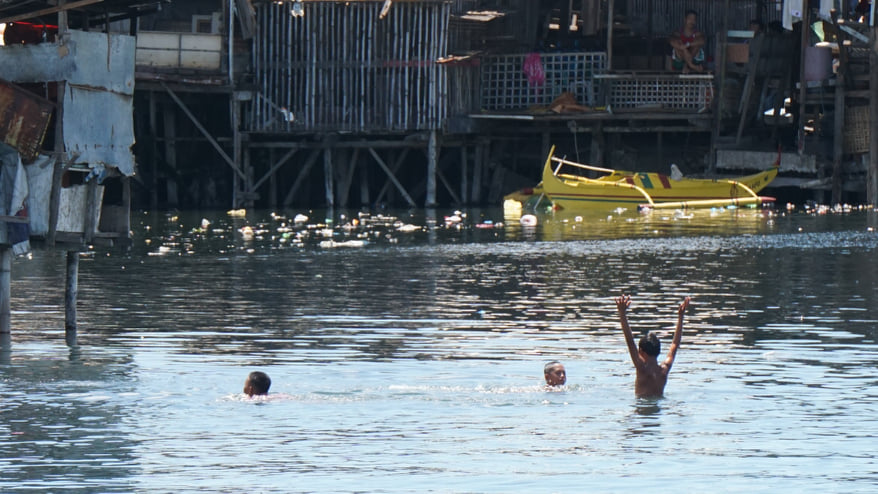DSWD resumes validation for Listahan 3

Some individuals beat the heat of the sun by taking a dip in the waters off Barangay Mambaling in Cebu City on Friday, May 22, 2020. | CDN Digital file photo
CEBU CITY, Philippines — The Department of Social Welfare and Development (DSWD) will resume the validation of poor households for the Listahan of the National Household Targeting System for Poverty Reduction (NHTS-PR) program, which is scheduled for its third-round assessment on September 2020.
Listahanan is an information management system that aims to establish a database of poor households that will serve as a basis for the identification of beneficiaries for the agency’s different social protection programs and services.
It was temporarily suspended due to the Coronavirus Disease 2019 pandemic.
The DSWD will now resume the validation after Secretary Rolando Bautista approved the National Action Plan for the continuation of the data collection, encoding, and validation operations for Listahanan 3.
The agency has put in place a safety protocol to ensure the house-to-house validation process will not be source of the spread of the coronavirus.
As of August 9, 2020, Listahanan has already assessed 13,582,143 households nationwide for its third-round implementation, of which, 90.33 percent are already encoded in the database.
The regional offices including the DSWD Regional Office in Central Visayas (DSWD-7) will be releasing the initial list of poor households after the validation and finalization phase.
In the finalization phase, all encoded information indicated in the household assessment form (HAF) are subjected to Proxy Means Test (PMT) for the generation of the initial list of poor households which shall undergo community validation.
The list will be posted in every barangay to provide opportunity for the public to review and make corrections on their household information.
Households who were not visited by DSWD but believe they are qualified to be in the Listahan may also make their appeal once this list is posted in the barangays.
DSWD clarified that the inclusion to the Listahanan does not guarantee any provision of cash aid or automatic inclusion to any program of the government.
However, the data that will be generated by the program will be used by national government agencies (NGAs), local government units (LGUs), non-government organizations (NGOs), and other institutions as a reference for beneficiary selection to ensure that qualified poor households will be prioritized for poverty alleviation programs and other appropriate interventions. /bmjo
Disclaimer: The comments uploaded on this site do not necessarily represent or reflect the views of management and owner of Cebudailynews. We reserve the right to exclude comments that we deem to be inconsistent with our editorial standards.
